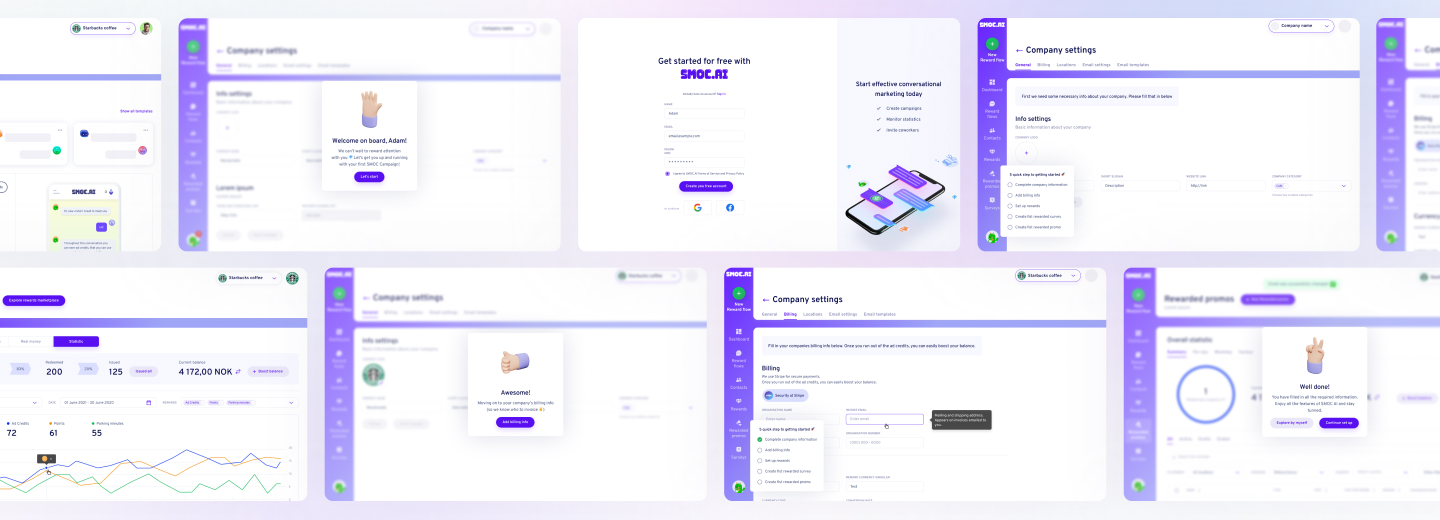Launching a startup is an exciting and at the same time challenging journey. Business founders seek outside assistance from sources outside their organization to transform their ideas into reality and grow their business operations. Incubators and accelerators stand as the primary support programs which boost startup success. The programs share common mentorship support with funding resources and networking connections by maintaining separate target stages for different business development phases.
But how do you determine which one is the right fit for your startup? This article identifies main differences between incubator vs accelerator, advantages for both programs and guide you on how to choose a program that matches your business needs.
what’s in the article
- What Are Startup Incubators?
- What Are Startup Accelerators?
- Difference Between Incubator and Accelerator
- Pros and Cons of Startup Incubators
- Pros and Cons of Startup Accelerators
- How to Choose Between an Incubator and an Accelerator?
- Conclusion
What Are Startup Incubators?
The start up incubator system supports new businesses in their early development stages using three main elements such mentorship, resources and a collaborative environment for growth. They provide more extensive support to small businesses than accelerators since incubators assist businesses from their proof-of-concept phase all the way to go-to-market readiness.
The incubators supply business enrichment activities by delivering office accommodations, networking options, and investor access to their members.Incubators do not require equity from participants since their administration comes from universities, government agencies, and private institutions. The programs guide innovation efforts by developing startups to a stable condition before businesses pursue external funding support.
Benefits for a Startup Joining the Incubator
A incubators for startups membership provides multiple benefits to new entrepreneurs who want to start their business journey. Some key benefits include:
- Mentorship and guidance – It offers business professionals and industry mentors who support planning improvements and product development strategies.
- Office space and infrastructure – They provide access to co-working spaces, necessary infrastructure, meeting rooms, and other essential tools.
- Networking opportunities – Incubators provide their members with the chance to meet valuable business contacts including entrepreneurs, industry leaders, and potential investors.
- Access to funding – The incubator platform typically does not provide funding directly but it connects startups with potential investment opportunities.
- Long-term support – They offer extended periods of ongoing support, startup consulting, since they enable startups to develop naturally at their preferred pace.
What Are Startup Accelerators?
Startup accelerators are structured, fixed-term programs that help new businesses to help early-stage companies grow and scale rapidly. Startup accelerators operate differently from incubators because they deliver mentorship, funding, and networking support for a compressed three to six-month time span.
Companies need to submit competitive applications to most accelerator programs for acceptance in exchange for partial ownership of their business. Startup acceptance at these programs provides industry experts who mentor them while offering access to investors and business model development tools. A “Demo Day” marks the end of the program when startups get to present to investors which improves their probability of securing additional funding.
Benefits for a Startup Joining the Accelerator
Membership in an accelerator program creates substantial growth opportunities for startups. Some key advantages include:
- Seed funding – They invest money at the initial stage which enables venture teams to enhance products and increase business operations before market growth.
- Intensive mentorship – Business owners receive personalized guidance through direct access to seasoned mentors and experienced advisors who provide valuable insights and guidance.
- Fast-track growth – Startup development through accelerator programs accelerates their growth process by delivering essential milestones in the time frame that traditional companies need multiple years to accomplish.
- Investor exposure – Startups gain straightforward access to venture capitalists, angel investors, and corporate partners which generate more funding possibilities.
- Market validation and credibility – Being accepted into a reputable accelerator adds credibility to a startup and makes investors and potential customers view the business more favorably.

Looking to Build an MVP without worries about strategy planning?
EVNE Developers is a dedicated software development team with a product mindset.
We’ll be happy to help you turn your idea into life and successfully monetize it.
Difference Between Incubator and Accelerator
The goal of startup accelerators and incubators overlaps with startup support but their programs exist at different operational ranges for various company stages. Understanding the startup accelerator vs incubator distinction helps entrepreneurs to choose the most suitable program for their requirements.
Program Duration
The main distinction between accelerators and incubators is the duration of their programs.
- Incubators: The support provided through incubators extends across multiple months up to multiple years. The flexible framework enables startup companies to establish their development process according to their growth speed rather than following set deadlines.
- Accelerators: They run their programs through a fixed duration of three to six months. The main objective of accelerators is to assist startups in developing their operations rapidly during an intensive and compressed period.
Investment Opportunities
Funding methods also vary between incubators and accelerators.
- Incubators: They help startups to develop their core infrastructure and enhance their concept while connecting them with funding sources although they do not provide direct financial support. They sometimes provide government funding opportunities along with financial grants.
- Accelerators: The standard practice of accelerators involves providing seed funding which requires equity ownership of the startup. Startups receive support from venture capitalists, angel investors, and corporate partners to obtain additional funding.
Stage of Startup Development
Startups at diverse development levels find maximum advantage through working with either incubators or accelerators.
- Incubators: Startups should consider joining incubators at their initial or idea stage. Through their services, entrepreneurs can create business models and confirm concepts while developing their minimum viable product (MVP).
- Accelerators: They deliver optimal results to startups that possess either a completed product or prototype but seek scale-up capabilities. The programs prioritize fast development alongside customer recruitment and market expansion activities.
Mentorship and Resources
Accelerators and incubators provide mentorship although they adopt different teaching models.
- Incubators: They provide long-term guidance, allowing smal companies to develop gradually. The facilities provide co-working spaces, legal support, and business development resources.
- Accelerators: They provide startups with extensive hands-on mentorship, successful business owners, and financial investors. Acceptable performance from accelerator programs includes structured support along with quick access to valuable networks.
End Result
Incubator accelerator – each program has its different end goals.
- Incubators: They pursue helping new companies test their ideas so they develop solid foundation leading to business success. A startup’s achievement of obtaining funds combined with product development and market entry defines its success.
- Accelerators: They help startups increase speedily while making them suitable for investment and setting them up for fast expansion. The main objective involves obtaining financial backing from investors and preparation for potential acquisition.

Proving the Concept for FinTech Startup with a Smart Algorithm for Detecting Subscriptions

Scaling from Prototype into a User-Friendly and Conversational Marketing Platform
Pros and Cons of Startup Incubators
Pros:
- Long-term support – Incubators extend their mentorship and resource support for startups so they can develop at their individual growth rates.
- Lower pressure – They provide startups with numerous benefits because they maintain a flexible timeline that lets businesses develop their business models without pressure.
- Affordable workspace – Many incubators supply workspace facilities alongside necessary business operations which help startups minimize their costs.
- Networking opportunities – Businesses gain access to professionals from the industry sector and investors and other entrepreneurs through networking opportunities.
Cons:
- No immediate funding – Startups must seek outside funding since the majority of incubators exclude direct financial support.
- Slower growth – The incubator approach supports gradual development which makes startup companies take longer to become market-ready.
- Competitive entry – The admission process at certain incubators becomes difficult because they implement competitive selection procedures.
Pros and Cons of Startup Accelerators
Pros:
- Fast-track growth – Through their fast-track growth model accelerators help startups achieve rapid expansion.
- Seed funding – Seed funding represents one of many accelerator programs that provides capital investment for startup equity which serves as early-stage financial backing.
- High-quality mentorship – Business startups gain access to top-quality mentorship from entrepreneurs, investors, and industry experts.
- Investor exposure – Accelerators connect startups with venture capitalists who can open funding possibilities.
Cons:
- Equity trade-off – Startups must give up a portion of ownership to equity investors who provide funding to their venture.
- Intense workload – The rapid environment of accelerators proves challenging for certain entrepreneurs because of its demanding workload.
- Short duration – Some startups need extended support periods than the predefined time span of the program.

Need Checking What Your Product Market is Able to Offer?
EVNE Developers is a dedicated software development team with a product mindset.
We’ll be happy to help you turn your idea into life and successfully monetize it.
How to Choose Between an Incubator and an Accelerator?
Deciding between an incubator and an accelerator depends on several factors such as startup advancement level, funding requirements, and planned expansion targets.
Choose an incubator IF:
- Your startup is in the first stages of idea development.
- You require mentorship together with necessary resources to build your business model.
- Your organization requires sustained backing without facing time constraints.
- The arrangement of funding for equity does not suit your current situation.
Choose an accelerator IF:
- Your startup has a working product or prototype and is ready to scale.
- Startup seed funding acts as the fuel needed for quick business growth.
- You have an ability to manage quick and demanding training programs.
- Your main priority is obtaining quick investor connections and potential partnership opportunities.
Conclusion
Startups gain essential opportunities through incubators and accelerators, but the right choice depends on where you are in your entrepreneurial journey. Incubators serve startups at early development stages who need extended support when accelerators help companies achieve quick scale. The selection process of accelerators or incubators should start with understanding incubator vs accelerator differences followed by evaluating your startup requirements to find the program that provides optimal success potential.
Do you need further information or additional refinements? Feel free to contact us.
The main difference between incubator and accelerator is in their timeframes because incubators operate through extended programs for early-stage startups while accelerators deliver short-term intense programs for startups with established products.
Incubator programs extend their support through a flexible time span of multiple months to multiple years. Accelerator programs exist as highly structured and intensive programs which run from 3 months to 6 months.
Yes, a startup should begin by joining an incubator for developing its concept and building products before moving to an accelerator for speed-based growth and investment opportunities.

About author
Roman Bondarenko is the CEO of EVNE Developers. He is an expert in software development and technological entrepreneurship and has 10+years of experience in digital transformation consulting in Healthcare, FinTech, Supply Chain and Logistics.
Author | CEO EVNE Developers


















